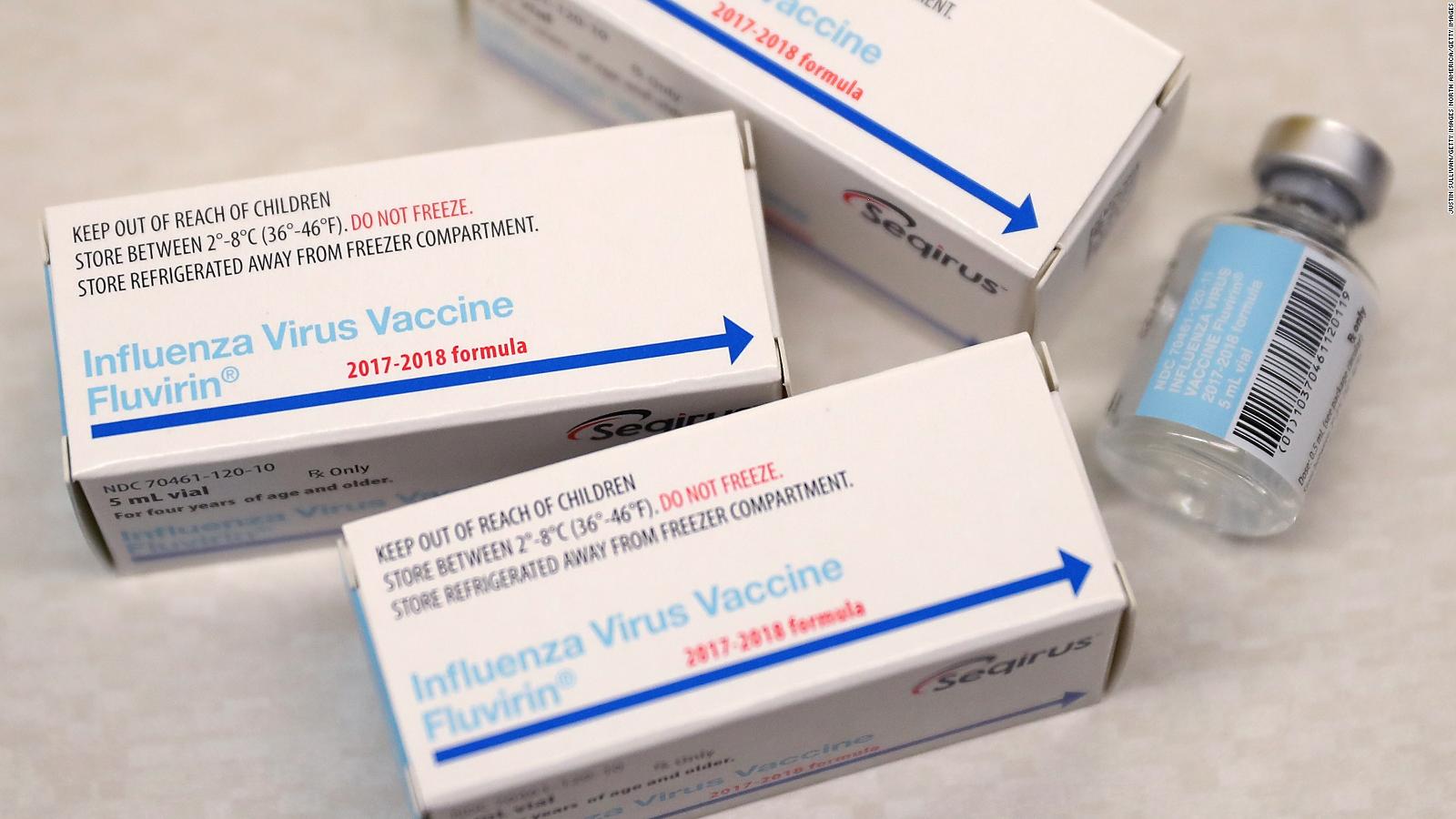Thirty-three states and Puerto Rico faced widespread flu activity for the week ended March 30, the US Centers for Disease Control and Prevention reported Friday.
"Here we are in April, and we're still having substantial influenza," said Dr. William Schaffner, medical director of the National Foundation for Infectious Diseases. "It's reduced but still substantial." During the previous week, 34 states and Puerto Rico reported widespread activity.
Longer than last year, less deadly
Although flu has not taken as many lives this year as last, when more than 80,000 people died, the number of deaths is still considerable. Five children died of flu-associated causes during the week ended March 30, bringing total number of childhood deaths for the season to 82; overall, as many as 50,900 total deaths due to flu have occurred this season, according to the CDC. Not all flu-related deaths are detected or reported, so the actual number may be higher.
The overall hospitalization rate was about 56 for every 100,000 people for the week ended March 30, with the highest rate, about 182 per 100,000, among adults over 65, the agency reported.
The CDC also estimated that there have been up to 549,000 flu hospitalizations during the 2018-19 season. Meanwhile, reports of flu-like illness are lessening. While 3.8% of people who visited a clinic or doctor's office complained of flu-like symptoms the previous week, only 3.2% did so during the week ending March 30.
Nationally, H1N1 viral strains have been predominant for the season overall. That said, all regions of the country have been H3N2-predominant for the past three weeks. The H3N2 strain, dominant during last year's 2017-18 flu season, generally causes worse flu symptoms, leading to more hospitalizations and deaths.
"We've had the dominance of H1N1 yield to now a dominance or at least an equivalence of H3N2, which means that the strain that causes more severe disease is actually producing a substantial amount of late season influenza this year," Schaffner said.
Finally, the CDC expects flu activity to remain elevated for several more weeks putting the nation on track for a long season.
"We are having a distinctive, prolonged influenza season," Schaffner said. He predicts that the continuing season will bring even more illness, hospitalizations and deaths, "because this season is going to go through April; it's not going to turn off immediately. And that's a late season."
Experimental vaccine breaks new ground
"It's difficult to speak with you because all my fingers and toes are cramped from being crossed," Schaffner said, joking about his high hopes for the new flu vaccine that entered clinical trials Wednesday.
This experimental vaccine, called H1ssF_3928, was developed by scientists at the National Institute of Allergy and Infectious Diseases in the hopes that it will provide long-lasting protection against multiple flu virus strains, including those that might cause a pandemic.
"This is an important first step on the multistep road to developing a universal flu vaccine," institute Director Dr. Anthony Fauci. "We're starting off with trying to protect against the group one influenza A viruses."
Fauci explained that there are about 18 influenza A viruses split between two groups, one and two. Although a true "universal" vaccine must prove effectiveness against all flu virus strains, that will be achieved only in gradual steps. The new vaccine, then, is the first step in that it aims to effectively thwart an entire group of related influenza viral strains.
The reason you need to get a new flu shot each year -- and the vaccine itself must be updated annually -- is because part of the virus constantly changes, Fauci said. This phenomenon is called "antigenic drift." To prevent antigenic drift, the new vaccine candidate targets a more constant part of the influenza strain, an aspect of the virus that varies relatively little from strain to strain.
This first phase of the clinical trial, a human experiment, is being conducted at the National Institutes of Health Clinical Center in Bethesda, Maryland. The goals of this first step are limited, Fauci said: "You want to see if the vaccine is safe -- which it likely will be -- and you want to see if it induces the kind of response that would be effective."
The experiment, led by Dr. Grace Chen of the institute's Vaccine Research Center Clinical Trials Program, will require at least 53 healthy adults up to 70 years old. Once they are given the flu shot, participants will return for up to 11 follow-up visits over a year to 15 months. Participants will not be exposed to an actual flu virus as part of the experiment because the scientists are testing for evidence of an immune response as well as safety and side effects.
Fauci expects "the usual type of side effects" as people get from the current flu vaccine, such as a sore arm, and does not expect any unusual reactions. The scientists hope to begin reporting results in early 2020.
"If this works, then you move to Phase 2 and then Phase 3," Fauci said, explaining that those are more involved human experiments looking at dosing and real-world effectiveness. "I'm optimistic because we're at the first step, and finally, we're looking at something that's truly designed to be a universal flu vaccine."
Schaffner said that "getting something like a universal vaccine, which would protect against a whole variety of different strains, would be a major medical advance." The research is "well-considered" and "now, we have to see if it works -- how well it works."
Flu affects the entire world's population, Schaffner said. "If we had a substantially improved vaccine, we could do an awful lot of good," he said. "We have high hopes."
Bagikan Berita Ini




















0 Response to "Flu cases still high as first human universal vaccine trial begins"
Post a Comment